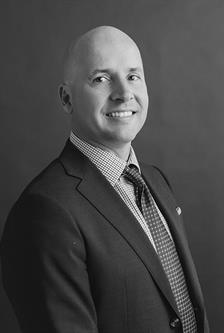
For individuals who have experienced a sudden death of a loved one, the shock and grief can be overwhelming. There are often feelings of loneliness, anger, exhaustion, and great sadness. Determining what the next step should be can often be extremely difficult. These feelings can be complicated even further if a loved one was killed by the negligence, recklessness or intentional wrongdoing of another individual, company, or business entity.
Wrongful Death
At Fasig & Brooks, our hearts go out to the survivors of someone who has passed due to a wrongful death situation. And, while there are so many feelings that occur at the time of someone’s passing, the practical reality is that those who emotionally and financially depend on someone who was wrongfully killed are entitled to seek monetary damages to help them go on during this period of readjustment, and can do so with the help of an experienced attorney.
Wrongful death can be caused in a variety of circumstances, including:
- Motor vehicle accidents;
- Medical malpractice and birth injuries;
- Workplace accidents;
- Product liability; and
- Criminal conduct.
Wrongful Death In Motor Vehicle Cases
Wrongful death cases often arise out of motor vehicle (car, truck, motorcycle, and bicycle) accidents and in negligence situations. Negligence refers to the failure of an individual to behave in a way that a reasonably prudent person would have acted in the same or similar circumstances. To establish that a wrongful death occurred in Florida, an experienced wrongful death attorney needs to prove that the individual or other entity owed a duty of care to the deceased individual, that the duty of care was breached or violated by an act or omission of the wrongdoer, and that that wrongful act was the direct cause of the death and the harm being suffered by the surviving family.
Cases where vehicular manslaughter charges have been brought by the state prosecutor’s office are often cases where a wrongful death action may arise. Under Florida Statute sec. 316.193(3)(c)(3), DUI manslaughter is an accusation that the accused person drove while under the influence of alcohol or a controlled substance, and as a result of this impaired driving, the accused person caused or contributed to the victim’s death. But prosecution under this statute is a criminal prosecution, which can result in the accused individual going to jail or prison. However, a wrongful death action is a civil claim which allows the victim’s family to recover for their loss.
For example, according to news reports, a local college student was recently accused of killing his classmate when he accidentally drove into a river after allegedly consuming one Xanax pill, one liquor shot, one line of powder cocaine, two bumps of powder cocaine, and about 14 beers in the roughly 12-hour period before the accident occurred. While a criminal action has been filed to punish the alleged wrongdoer, a civil action also may follow to help compensate the family for their losses.
Filing A Wrongful Death Lawsuit
The Florida Wrongful Death Act allows survivors (such as a spouse, minor children, parents, or other relative who is dependent on the victim for financial or emotional support) to seek compensation for their losses. In addition to compensatory damages, punitive damages also may be awarded if the wrongdoer’s actions were intentional, reckless, or grossly negligent in causing the victim’s death.
Typically, a Florida wrongful death case must be brought within two years of the date of death. However, the lawsuit must be filed sooner in some situations, such as in the case of medical malpractice or negligence by a government entity.
The personal injury and medical malpractice attorneys at Fasig & Brooks have extensive experience in wrongful death cases. Please contact us at (850) 222-3232 with any questions you may have.





